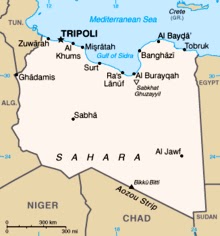1) At the FDD Tony Badran and Emanuele Ottolenghi explain ‘Hezbollah Finance in Lebanon’.
“The government of Lebanon seeks an international bailout to save its financial system, which will require an estimated $93 billion rescue. The amount needed is astronomical. But even if a rescue were feasible, other systemic challenges remain. Lebanon’s financial system is rife with illicit finance. It is a conduit for money laundering schemes that fund Hezbollah and its nefarious activities, generating billions of dollars per year for the terrorist group. […]
Hezbollah generates significant proceeds in cash from criminal activities. The terrorist group relies on complex trade-based money laundering schemes spanning from South America to Africa to the United States. But for Hezbollah to repatriate this money, the funds must transit the formal Lebanese and international financial systems.”
2) MEMRI documents Palestinian leaders’ criticism of the UAE-Israel normalisation agreement and some of the Arab reactions.
“The reaction of the Palestinian Authority (PA), headed by President Mahmoud ‘Abbas, to the August 13, 2020 announcement of UAE-Israel normalization was blunt and harsh. The PA accused the UAE of betraying the Palestinians and their cause, as well as Jerusalem and Al-Aqsa, of “aggression towards the Palestinian people,” of stabbing the Palestinians and the Arab and Islamic nation in the back with a “poisoned dagger,” and of making concessions to Israel for nothing in return.[…]
The condemnation reached its peak at a September 3, 2020 conference of Palestinian faction leaders that included representatives of Hamas and Islamic Jihad alongside representatives of Fatah and other factions. At the conference, ‘Abbas, as well as Mu’in Hamed, leader of Al-Sa’iqa organization, a PLO faction, spoke bluntly and derisively of the Gulf states, calling them “illiterate” and saying that the Palestinians, who are far more educated than they, do not need anyone’s help.
The Palestinian leadership’s statements provoked much criticism on social media and in the Arab press, especially in Saudi Arabia, the UAE and Egypt. Daily newspapers in these three countries have published dozens of articles since the normalization agreement was announced expressing support for the UAE’s decision and condemning the Palestinians, especially their “ungrateful” leadership.”
3) The ITIC examines European Union support for the Islamic University of Gaza.
“The Islamic University of Gaza (IUG) is a radical Islamist academic institution which has been a Hamas stronghold since its founding. Generations of Hamas’ military and political leadership grew out of the university, and Hamas holds political, ideological and military activities within its walls. The IUG has enjoyed EU support for many years, manifested by the EU’s integrating the university into projects it funds and the exchange of students and faculty, even though the EU regards Hamas as a terrorist organization. The EU support for the IUG is part of its support for Palestine, that is, the Palestinian Authority (PA). The EU has a representative in Ramallah through whom support is transferred to the IUG, although it is aware that in reality the PA has no real influence on what happens inside the university.”
4) The INSS has published a memorandum by Kobi Michael and Michal Hatuel-Radoshitzky titled ‘Seventy Years to UNRWA — Time for Structural and Functional Reforms’.
“The year 2020 marks seventy years since UNRWA (United Nations Relief and Works Agency for Palestine Refugees in the Near East), which serves Palestinian refugees in the Gaza Strip, the West Bank, Jordan, Syria, and Lebanon, began operation. Since its establishment by virtue of the mandate given to it by the UN General Assembly, UNRWA has not succeeded in bringing about the true rehabilitation of the Palestinian refugees and in reducing their number, which has risen from approximately 700,000 on the eve of the State of Israel’s establishment to over 5.5 million refugees in 2020. The impact of the regional upheaval on the Palestinian refugees, the stagnation of the political process between Israel and the Palestinians, the split in the Palestinian arena, the humanitarian distress in the Gaza Strip, the centrality of the refugee issue in the Palestinian narrative, and the American administration’s 2018 decision to stop funding UNRWA pose even more complex challenges for the agency.”




